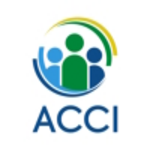
2024 Annual Conference
May 21–23, 2024
Hyatt Regency Milwaukee, Milwaukee, WI, USA
IMPORTANT NOTICE: The date, time, and room assignment of YOUR presentation is SUBJECT TO CHANGE.
Proposal authors can use this tool to see where they have been placed in the program agenda for an Oral or Poster Session.
Scroll down to search by the Submitter or Author Name, by Date/Time, or by Keywords.
Confirm your place in the schedule by following the instructionss that were emailed to you. Each presentation must have a separate paid registration. Contact the ACCI office immedicately by email at admin@consumerinterests.org to report any conflict, all corrections to the details of the presentation (including author names and the order they are listed as this is how it will be in the final program), or if you have any questions. Please be sure to reference the session title(s), date(s), and time(s) when you contact us.
P109 The Civic Mindset as a Resource for Community Coalitions
Short Description
Cooperative Extension is involved in many community initiatives designed to improve well-being, often funded by grants. Typically, the grant report is due before program effects are measurable. The challenge was to find changes that preceded these outcomes. One such change was mindset, i.e., the collection of values, aspirations, traits, and motivations that guide life decisions and actions. Measuring the presence of mindsets supportive of intended program outcomes would provide a reasonable case for the probability of ultimate outcomes. Using data from an online survey of 306 US adults ages 18 to 76 residing in a rural county, we applied the Quantitative Empathy methodology to discover existing mindsets and to develop a “typing tool” to assess the presence of each mindset in a given community. Using a set of defining characteristics discovered through our analysis, seven mindsets were identified: The Drop In, The Independent Wanderer, The Detached Resident, The Community Enforcer, The Community Leader, The Dedicated Doer, and The Resourceful Loner. These mindsets that were validated through an exercise with Cooperative Extension agents working in the counties exhibit important differences in civic engagement that are likely to support predictions of probable program effects.
Type of presentation
Accepted Poster Presentation